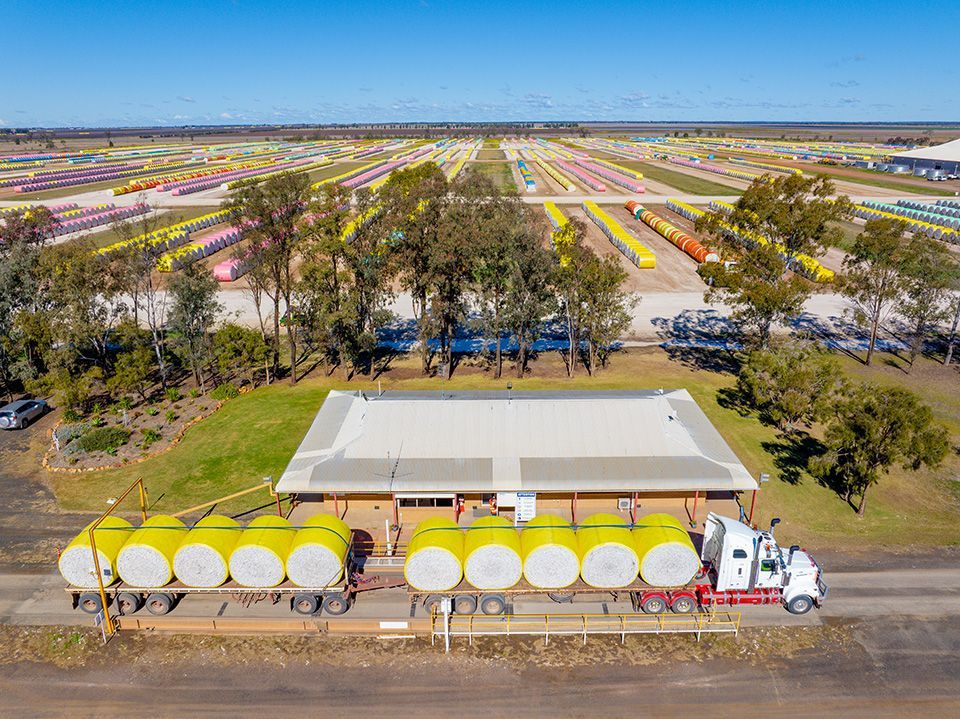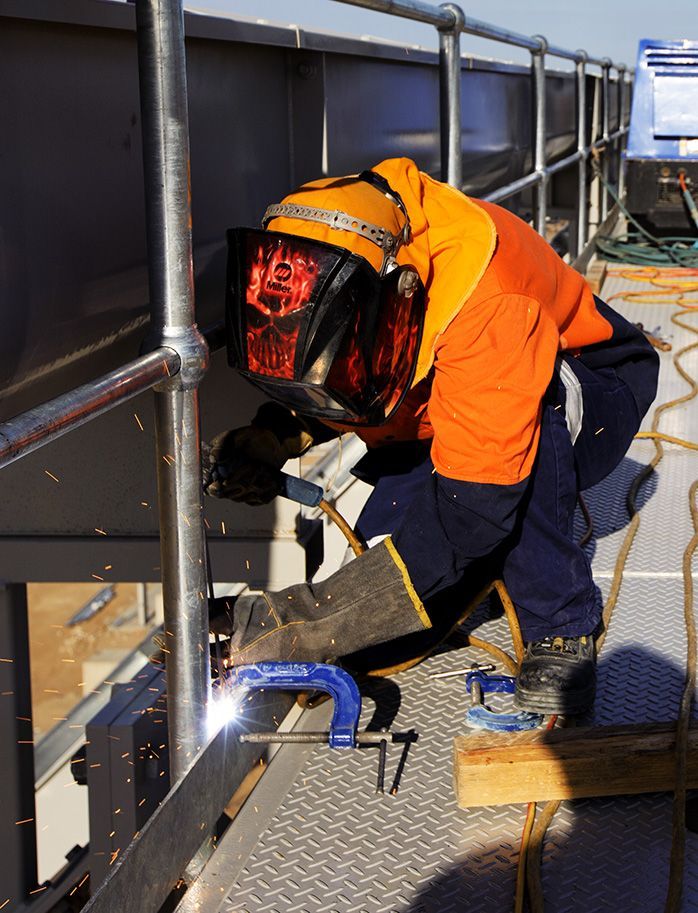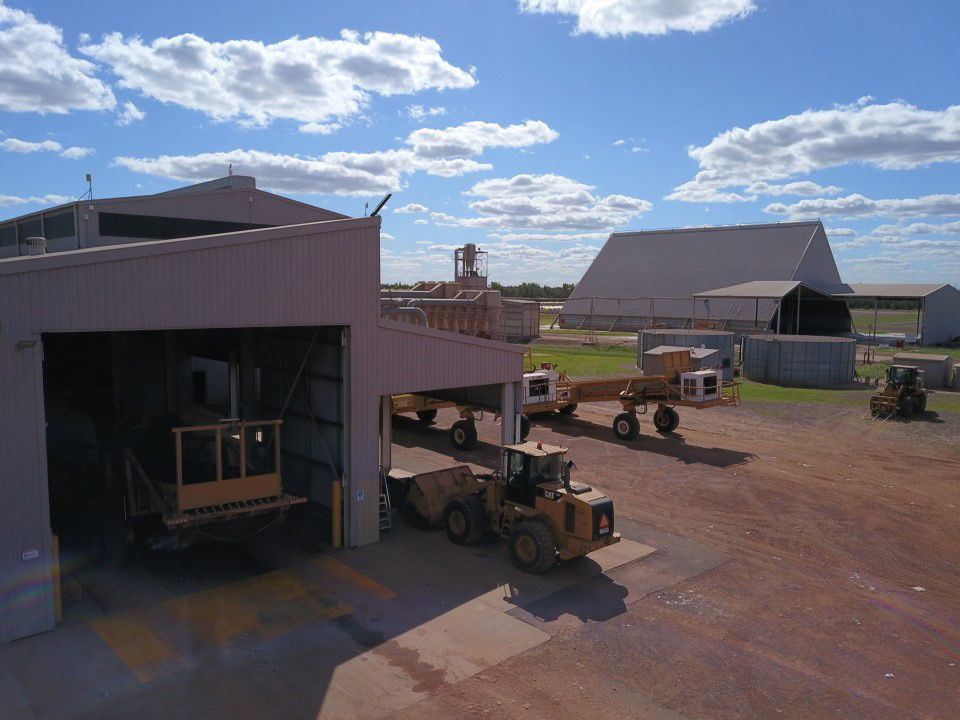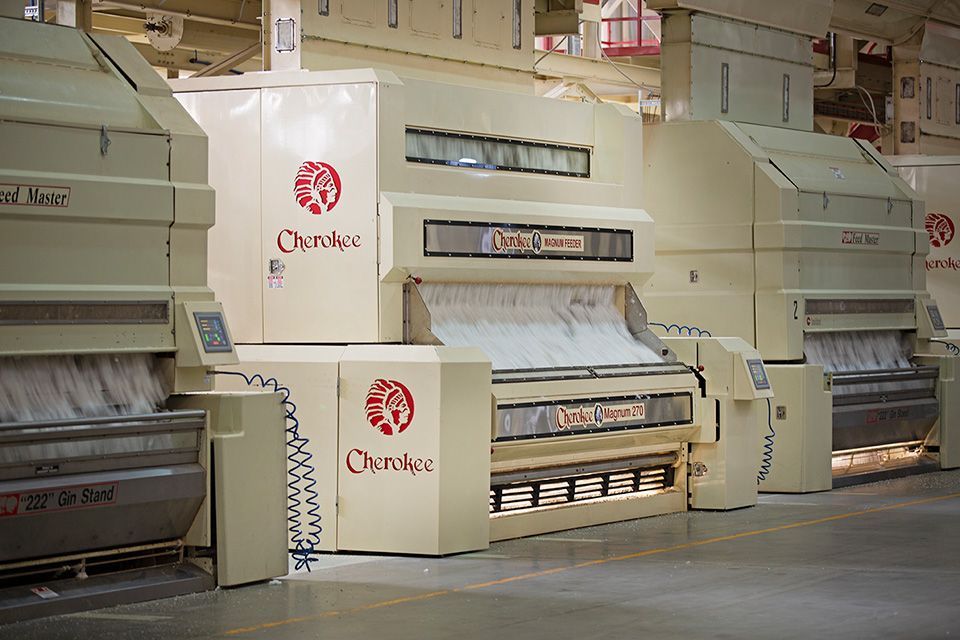Industry Overview
The ginning industry in Australia is comparatively modern and highly automated with higher throughput when
compared to other countries. The principal function of the cotton gin is to remove trash, separate lint from seed and produce the highest possible return for the resulting lint and seed. A ginner has two objectives:
- To produce lint of sufficient quality and quantity to enhance and maximise the return to the grower.
- To produce a fibre with minimum damage to satisfy the demand from the spinner and the consumer.

Location
In Australia the bulk of the cotton gins are located in New South Wales (NSW), and Queensland (Qld), with more recent expansion into Northern Territory (NT) and West Australia (WA) in close proximity to cotton growing areas.
Since Australia only produces Upland cotton (Gossypium hirsutum L.) saw ginning is the prevailing gin technology; with 39 operational high capacity saw gins and one under construction and planned to be operational for the 2025 season. More than 90% of all cotton is grown under irrigation, with the rest grown as rain fed (dryland). All the cotton is
mechanically harvested by mainly by spindle harvesters, while some rain fed cotton is harvested by strippers.
The cost of cotton production in Australia is but yields and fibre quality ensures that the industry remains competitive. Gins in Australia are therefore highly automated and productive systems.
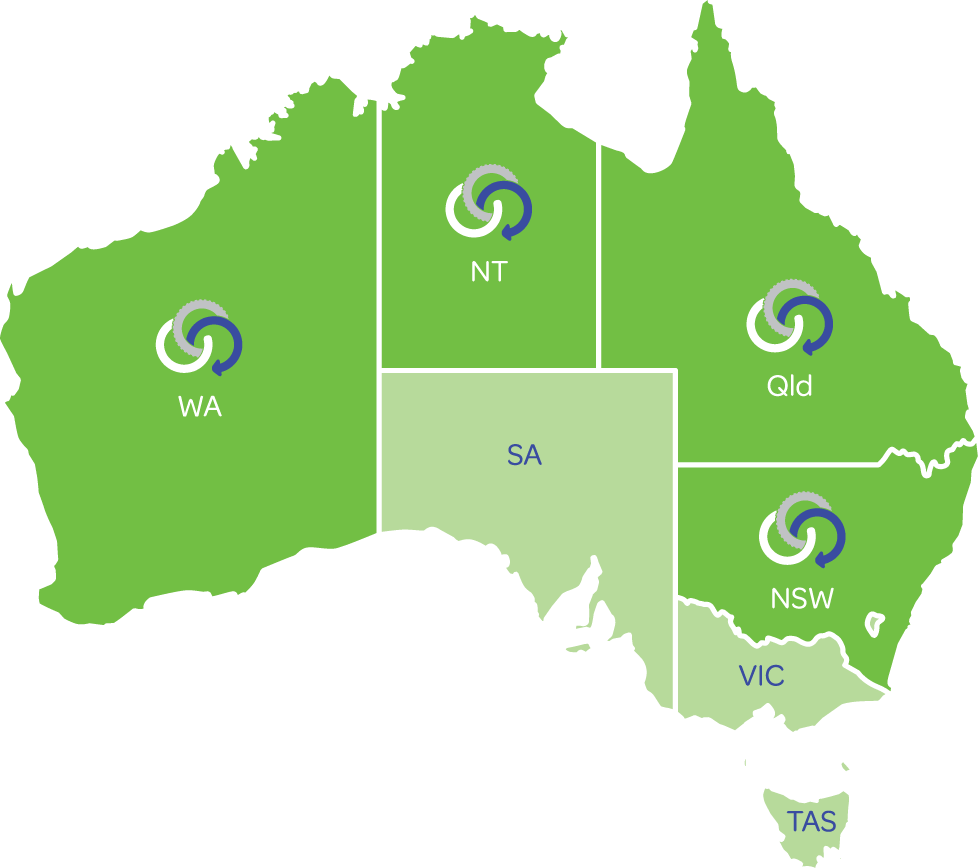
© 2024 ACGA Australian Cotton Ginners Association | Privacy Policy | Disclaimer

